“We’ve been working here since 2012, but the situation has never been so dire.”
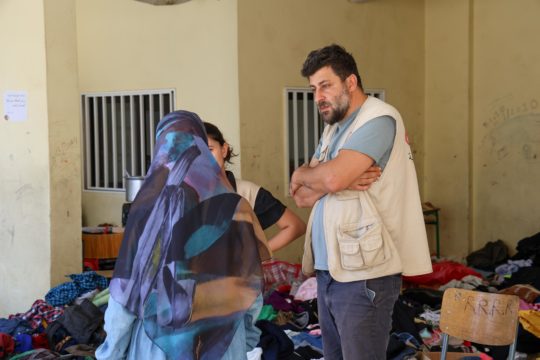
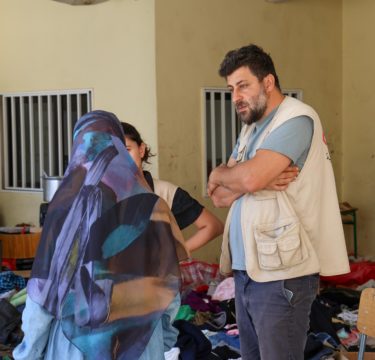
The Polish Foundation PCPM is managing aid in several dozen municipalities in northern Lebanon. Families are arriving from the shelled South. The number of internally displaced persons has already exceeded 600,000, more than half of whom are children. The crisis that began in September continues.
Everything is needed
Since the first day of the crisis, the Polish Center for International Aid Foundation has supported people fleeing the war. “We have been working on the ground since 2012, but the situation has never been as dramatic as it is in the face of the current war. The needs are growing with every bomb that falls and with waves of families who end up in schools that are under the care of the Polish Center for International Aid”, says Rana Gabi, head of the PCPM Foundation’s mission in Lebanon.
Lebanese authorities have asked the Foundation to assist in a “humanitarian zone” in several dozen municipalities in the Akkar district in the northern part of the country.
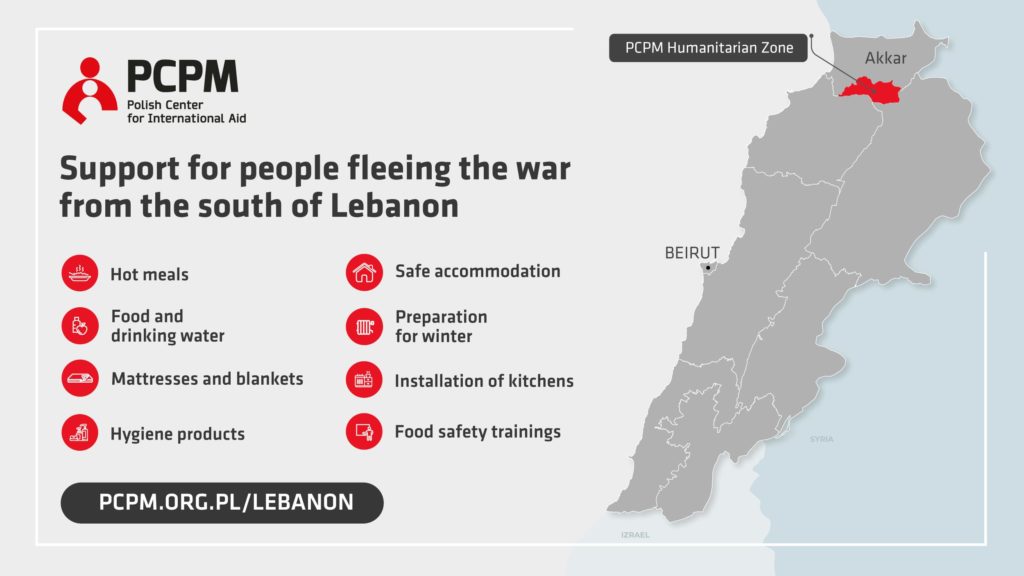
PCPM provides shelter, food, and hygiene items and installs kitchens in collective shelters where refugees from the south stay. People arrive at such places with entire families and with nothing. Alerts about the need to evacuate come suddenly, often at night, and families sometimes have only 20 minutes to move 500 meters away from their homes. “We came to this place without clothes, money, or anything,” says one woman who found shelter in a school where PCPM is helping. She added, “When we arrived, the rooms were empty, and we gradually started to receive some help step by step.”
Nearly a thousand collective accommodation centers have opened in Lebanon, but over 80% are complete. Where the PCPM Foundation is helping, essential support is also constantly needed. “Everything is lacking here: mattresses, blankets, food,” explains Rana Gabi.
That’s why every support is important. You can help through pcpm.org.pl/lebanon
Over 100 people and two bathrooms
The places where refugees live are schools, universities, and other educational institutions. They are not prepared to accommodate such a large number of people. The tap water is not potable, and bottled water is not always available, so there is a high risk of health problems and infectious diseases, including local cholera epidemics, which have occurred in Lebanon in recent years, even without a crisis of this scale. The centers are home to the elderly and the sick. “I came here with my father, who needs heart medication,” says Maher Al-Hajj, a cartoonist and graphic artist who arrived in Akkar from the outskirts of Beirut.
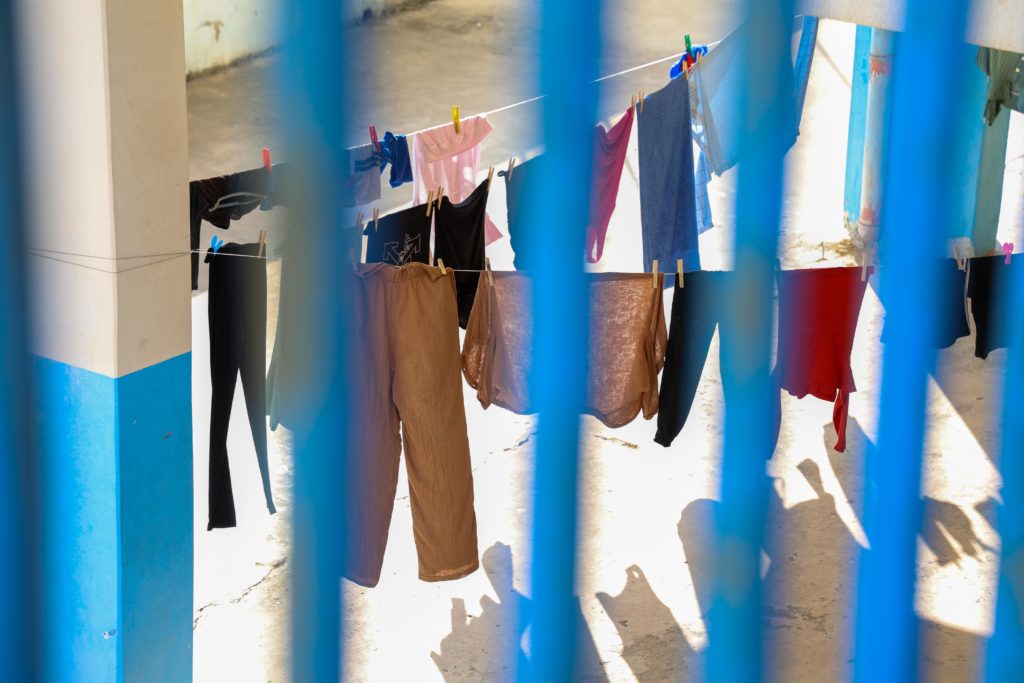
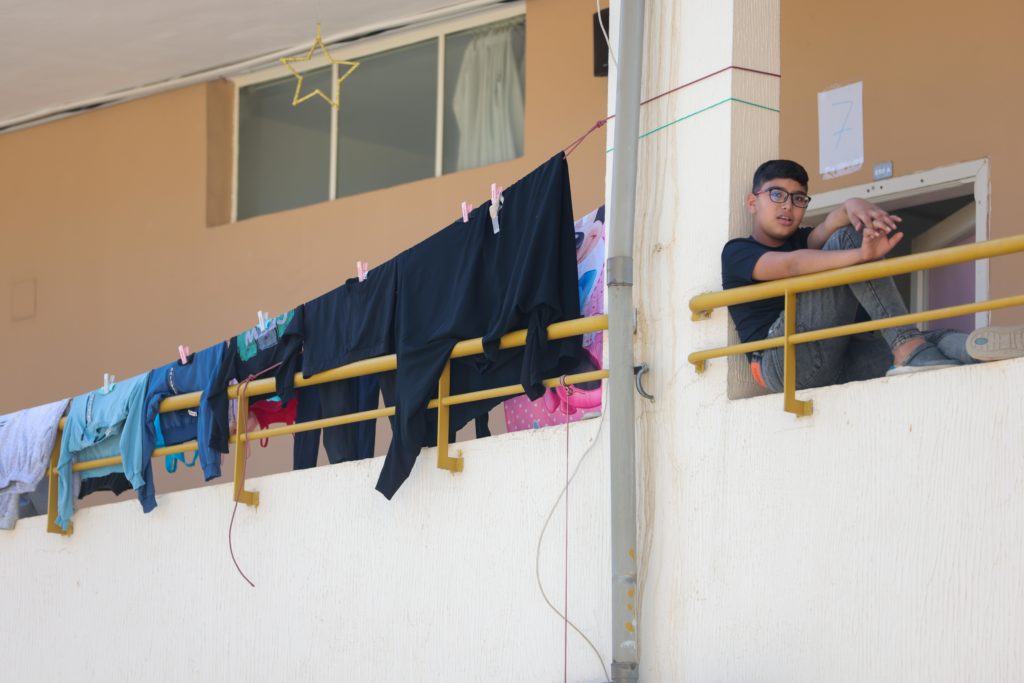
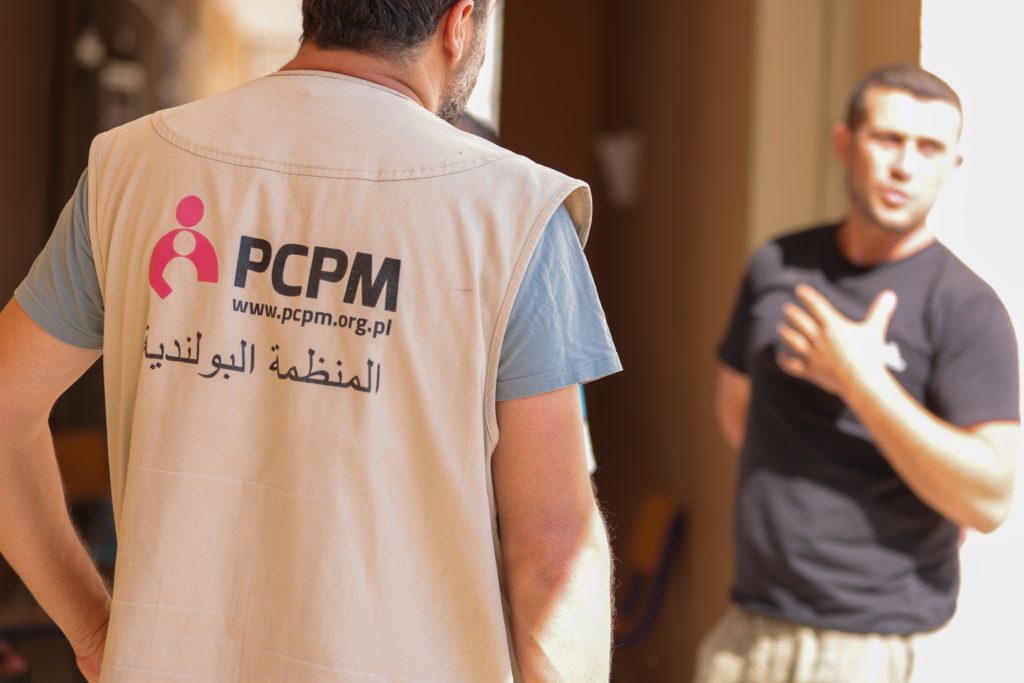
There are one or two bathrooms for every 100 or even 200 residents. Often, there is no way to wash or wash clothes. There is also a lack of electricity. Even before the war, the state provided only one hour of electricity daily, and residents supplemented it with generators. Some of the centers where PCPM is helping have solar panels installed, but they are also not enough for such a large group of people. “We need refrigerators to store food. People also need electricity to charge their phones to stay in touch with their families,” says one of the refugees.
Many people still have families in the South. They left their homes there, too. They don’t know if they will have anywhere to return to, and they also don’t know when it will be possible.
Preparing for winter
Unfortunately, there is little indication that the crisis will end soon. And already now, in the north of the country, the temperature at night drops to 6 degrees Celsius. “We are in the mountains, and the floors of the schools are cold, so families have to sleep in shifts on mattresses because there is a lack of beds and basic things that they simply couldn’t take with them when they fled,” says Rana Gabi.
Those fleeing need to prepare for such conditions. “I lived near the southern suburbs of Beirut. I decided to leave this place when the shelling intensified. The children could no longer bear it; they were terrified. We moved here, to the mountains. My children are not used to such temperatures. We don’t have any clothes. We didn’t have time to take anything with us,” says Maher Al-Hajj.
Therefore, the Foundation wants to prepare collective shelters for winter, buy fuel, and seal doors and windows. Despite the crisis, the Foundation has not stopped its planned activities. It is still building irrigation canals to bring clean water to agricultural fields, repairing roads damaged by fires, and installing solar panels as part of a project funded by the Polish Aid program of the Ministry of Foreign Affairs.